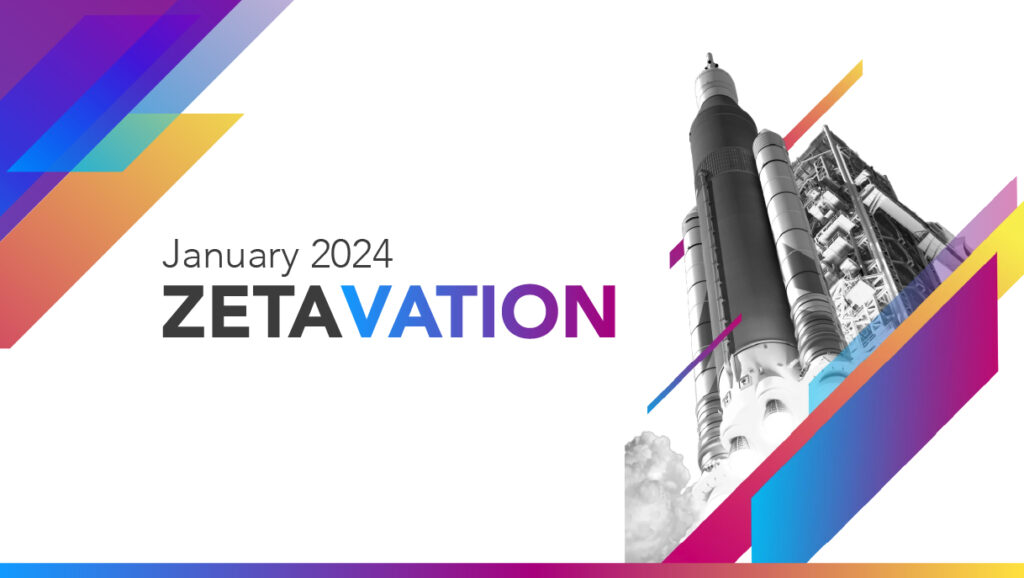
The Power of Integration: Why Point Solutions and Legacy Systems are Holding You Back
It’s no secret that marketers today are facing immense pressure to build meaningful relationships with their customers. Interest rates are rising, the economy is slowing, venture capital is drying up, and consumers are pinching pennies. It’s a perfect storm that’s forcing companies to get creative.
The problem is, according to a recent study by Forrester Consulting, commissioned by Zeta, almost half of marketers don’t trust their tech stacks. Many organizations find themselves grappling with legacy systems and myriad point solutions that aren’t properly integrated, resulting in incomplete insights, identity and privacy missteps, and broken customer experiences.
In this post we’ll dive into the findings from the research to explain why true tech stack integration needs to be a priority in 2023 and beyond, and how to achieve it.
Too Many Tools and Unleveraged Data Have Marketing and Business Consequences
The recent trend of adopting multiple best-of-breed tools has inadvertently created an overly complex technological environment for marketers. According to the study, it’s not uncommon for companies to now rely on eleven or more solutions that directly impact the customer experience. Furthermore, a significant portion of these organizations store and process at least nine diverse types of customer data within their various tools.
Unfortunately, this fragmented approach poses significant marketing challenges, including the manual effort required to analyze data for actionable insights (57%), challenges testing and optimizing campaigns (52%), difficulty tracking and observing customer preferences (52%), and difficulty building holistic customer profiles (49%). Moreover, this reliance on multiple systems increases operating expenses and introduces security vulnerabilities, creating potential risks for data breaches and privacy concerns. Inefficient data practices also impact business KPIs such as lost revenue due to extended campaign time to market, impact to brand value due to poor customer experience, and missed opportunities.
To Provide the Best CX, Marketers Need to Reduce Martech Complexity
When evaluating solutions, marketers should balance strong existing out-of-the-box integrations with the flexibility to create new integrations at scale. By streamlining their marketing stack and creating a centralized and integrated environment, marketers can minimize wasted resources on manual data analysis and irrelevant campaigns and focus their energy on high-impact activities such as campaign optimization and strategy development. According to the research, a well-integrated data and technology environment yields immediate, far-reaching benefits including:
- Improved brand reputation (68%)
- A revenue advantage through increased speed to market (68%)
- Improved internal collaboration, allowing teams to access and share information seamlessly (61%)
- Ability to analyze data in the application enabling real-time insights and empowering data-driven decision-making (59%).
These findings underscore the importance of reducing environmental complexity to enhance customer experiences and drive overall marketing success.
Elevate Your Integration Standards with the Zeta Marketing Platform
As we’ve uncovered, investing in seamless integration is no longer just a box to tick; it’s a strategic imperative. If you’re ready to unleash your data to create truly individualized experiences, the Zeta Marketing Platform (ZMP) is your answer.
The ZMP has been designed for marketers’ needs with the unique flexibility to wrap around and augment the brand’s tech stack, providing speed to intelligence, deeper analytics, and activation to deliver greater return on investment. With Zeta’s modern, schemaless architecture, you can seamlessly ingest and reconcile data from anywhere in your technology stack, enabling you to build a unified view of customer behavior that can be enriched with Zeta’s proprietary Data Cloud. But it doesn’t stop there. Zeta offers flexible data connectors that put you in the driver’s seat, allowing you to take advantage of our pre-built connectors or create custom integrations that align with your unique needs. This level of control ensures that your integration efforts are truly elevating your marketing ecosystem.
Whether the ZMP is the single platform environment removing the need for multiple point solutions, or it’s connecting the dots to extract more value from current tech investments, this study underscores that the AI-powered ZMP is at the forefront of the next generation of marketing technology.
If you would like to learn more about the value of data integration, download the Forrester Opportunity Snapshot to learn how prioritizing integration can reshape your marketing strategies and drive meaningful ROI. `


